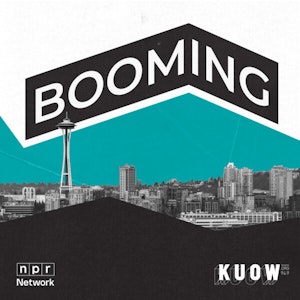Alec Cowan
Senior Podcast Producer
About
Alec Cowan is a senior podcast producer at KUOW, where he works on Booming and other podcast projects.
Alec has worn many hats at KUOW. He helped launch Soundside and brought many eclectic stories to the program, from a late-night patrol with real life superheroes to the sewing machine sounds of an artisanal sail loft. Additionally, he was previously a producer for The Record with Bill Radke and the Primed podcast.
Before joining KUOW, Alec worked in NPR's Story Lab, where he helped pilot the Louder Than a Riot podcast and assisted in producing a story on volunteerism in Iraq for Rough Translation. Originally from Grand Junction, Colorado, his roots in the Northwest begin in Eugene, where he studied English and philosophy at the University of Oregon and worked as a news reporter for NPR member station KLCC. He is likely neglecting his saxophone, growing book collection, and expanding personal project list in favor of boosting his online Xbox ranking.
He's proud to be KUOW's unofficial "boat guy."
Location: Seattle
Languages Spoken: English
Pronouns: he/him/his
Podcasts
Stories
-
It's time to do a vibe check on the state of remote work
-
How a battle over owls points to a bigger question in conservation
-
Fitz Cahall on 17 years of finding new adventures outdoors
-
Weekend rain a welcome relief as wildfire burns near Stehekin
-
Hear It Again: He broke his neck diving into a pool. 20 years later, new technology is helping him recover
-
New COVID study finds pandemic mandates did, in fact, save lives
-
Updates are coming to this 60-year-old treaty guiding the Columbia River
-
Race remains tight in primary for public lands commissioner
-

In Point Roberts, tourists' slow return prompts questions about the peninsula’s future
-
Community of Point Roberts struggling as tourists are slow to return

